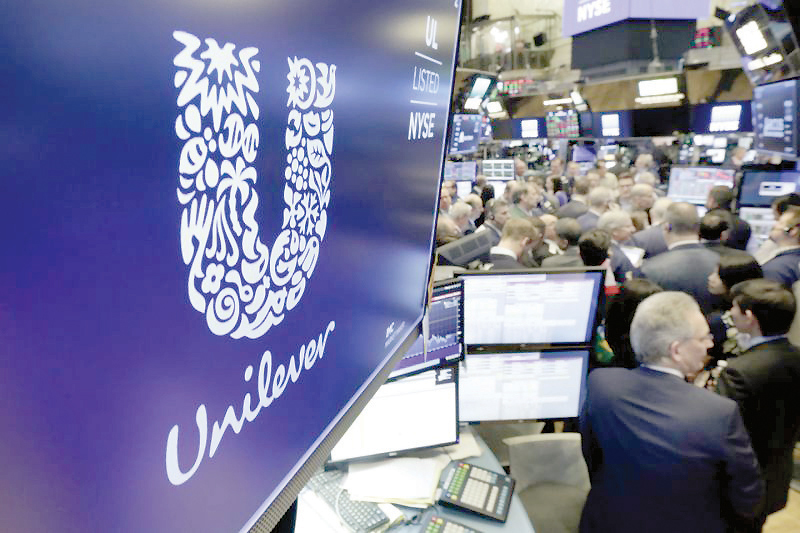

Dasha Afanasieva -
Unilever’s foods business is going slightly stale. Like its Swiss rival Nestlé, the Anglo-Dutch giant beat sales growth forecasts in the first quarter by growing its top line 3.1 per cent on a like-for-like basis, according to a report.
New Chief Executive Alan Jope is sticking with his targets for the year and, like Nestlé, to a 20 per cent operating margin goal by 2020. Beauty and homecare are doing fine, but Unilever’s foods and refreshment segment is looking less fresh.
In Jope’s first quarter in charge, the food division’s sales grew just 1.5 per cent organically from a year earlier — down from a 2.3 per cent expansion in 2018. While ice cream, which includes fast-growing Ben & Jerry’s, performed well, sales in tea and savoury items were flat.
The category including ketchup and mayonnaise declined.
The acquisition of nuts and healthy snack company Graze, announced in February, was a nod to consumer trends. But while the deal value was not disclosed, old revenue figures for Graze suggest it was a very small step.
Packaged victuals are tricky overall but food-heavy Nestlé, with overall underlying growth of 3.4 per cent year-on-year in the first quarter, seems to do better at refreshing its range.
For example, it recently used its meats division, which is now for sale, to launch vegan meat substitutes.
Jope is awake to the trends, pointing out that healthier green teas are among the fastest growing Lipton brands.
Yet slowing food sales growth suggests he’s not acting fast enough. That helps explain the rival companies’ respective valuations.
The $165 billion Unilever trades at an enterprise value of around 15 times EBITDA (Earnings before interest, taxes, depreciation, and amortisation) compared to close to 17 times for $289 billion Nestlé, according to Refinitiv data.
To be fair, Unilever is shifting gradually away from foods and towards faster-growing beauty and personal care, which includes brands such as Dove and Simple. It sold its Flora-making spreads unit last year.
But foods and refreshment still represents 36 per cent of Unilever’s turnover, on first-quarter numbers.
The required diet may involve selected healthier acquisitions like Graze and cutting out more existing lines that aren’t worth their salt. — Reuters
Oman Observer is now on the WhatsApp channel. Click here



